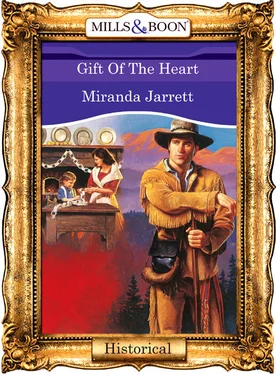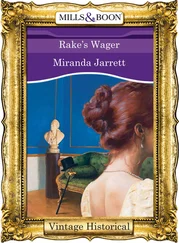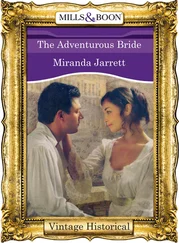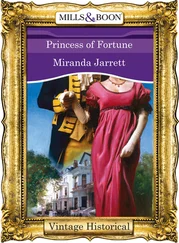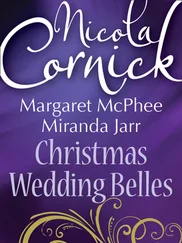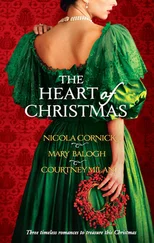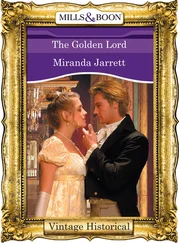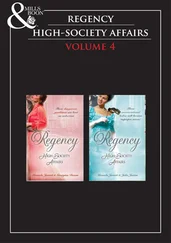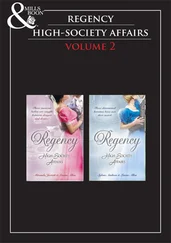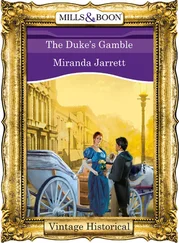Miranda Jarrett - Gift Of The Heart
Здесь есть возможность читать онлайн «Miranda Jarrett - Gift Of The Heart» — ознакомительный отрывок электронной книги совершенно бесплатно, а после прочтения отрывка купить полную версию. В некоторых случаях можно слушать аудио, скачать через торрент в формате fb2 и присутствует краткое содержание. Жанр: unrecognised, на английском языке. Описание произведения, (предисловие) а так же отзывы посетителей доступны на портале библиотеки ЛибКат.
- Название:Gift Of The Heart
- Автор:
- Жанр:
- Год:неизвестен
- ISBN:нет данных
- Рейтинг книги:3 / 5. Голосов: 1
-
Избранное:Добавить в избранное
- Отзывы:
-
Ваша оценка:
- 60
- 1
- 2
- 3
- 4
- 5
Gift Of The Heart: краткое содержание, описание и аннотация
Предлагаем к чтению аннотацию, описание, краткое содержание или предисловие (зависит от того, что написал сам автор книги «Gift Of The Heart»). Если вы не нашли необходимую информацию о книге — напишите в комментариях, мы постараемся отыскать её.
Gift Of The Heart — читать онлайн ознакомительный отрывок
Ниже представлен текст книги, разбитый по страницам. Система сохранения места последней прочитанной страницы, позволяет с удобством читать онлайн бесплатно книгу «Gift Of The Heart», без необходимости каждый раз заново искать на чём Вы остановились. Поставьте закладку, и сможете в любой момент перейти на страницу, на которой закончили чтение.
Интервал:
Закладка:
And it was, she decided, a risk worth taking. With a brief, nervous smile, she glanced back at him over her shoulder.
“Does thee believe that thy appetite could be tempted by a plate of stew?” she asked as cheerfully as she could. “To me thee seems well enough for heartier fare.”
He relaxed and set the rifle in his lap to one side, his mouth watering already from the smell alone. “Thee couldn’t keep me from thy table now, as thee knows perfectly—”
He broke off, realizing too late how neatly she’d tricked him. Butler must have described him in every detail when he’d posted his blasted reward.
“Thee’s a clever woman,” he said dryly. “Thee knew to use stewed rabbit and onions as bait to catch a poor feeble invalid weary of gruel.”
“There’s nothing feeble about you that time and stew won’t cure.” She concentrated on spooning the hot stew into a pewter bowl, avoiding the reproach that she knew would be on his face. She had tricked him, true enough, but now she had her answer, too.
Carefully she wrapped a cloth around the bowl to hold in the heat, and brought it to him in the bed. “Don’t eat so fast that you burn yourself,” she cautioned. “And mind you don’t spill. I don’t want to consider what sort of hideous mess that would make on the coverlet.”
“My, my, but your concern’s alarming,” he said as he took the bowl and balanced it on his knees. “I think I liked the plain speech better.”
She dragged a chair closer to sit at his bedside to keep him company while he ate. “My grandmother was a Friend, and I always liked to listen to her talk. She could make even a scolding sound special. While you were ill, you often spoke that way, too.”
He stared at her, mute with horror, while the stew turned tasteless in his mouth.
God preserve him, what else had he babbled to her? Had he told her of the dull whistle that a tomahawk makes as it whips through the air, the sickening thud when it buries deep in its mark? In the grip of the fever had he raved about the smoke from the burning houses, the screams of the dying or the last frantic wails for mercy that had filled the early-morning air? Had he confessed to her what he’d seen, what he’d done in the empty name of his king, and failed to do for his own conscience?
To Rachel it seemed his face shuttered in an instant, closing her out as his eyes turned cold and empty. Her curiosity had done this, she thought with an inward shiver, her infernal curiosity had driven away the man who’d so gently teased Billy, and left her instead with another whose face was as hard as if carved from the same granite as the cliffs in the valley.
A face that belonged to one of Butler’s Rangers, to one of her enemy, to a man who, weak though he was, could still load and aim a rifle with terrifying accuracy.
“It wasn’t what you said, but how,” she said, struggling to explain herself. “I didn’t mean it as an insult, you know. In this part of New York, there are so few Friends that I found your words remarkable.”
“And you thought I might have a Quaker grandmother, too?” He forced himself to make his manner light, to lift the carved horn spoon dripping with gravy again and again to his lips as if nothing had changed.
If she knew the truth, she could not sit here with him, not this close. No decent woman could. Butler’s reward would be nothing compared to her horror if she knew the truth. With luck, she never would, at least not until he was gone from her life.
She shook her head, her carnelian earbobs swinging. “I thought you were a Friend yourself,” she said, almost wistfully. “Even with you dressed as you were, and carrying the rifle and a knife.”
“You’re right enough there,” he said wearily. “No decent, godly Friend would carry a weapon of any sort to be used against another man.”
“My grandmother wouldn’t allow guns anywhere in her house, not even for hunting game. Not that there was much to shoot on an island, anyway.” She tried to smile in the face of his still-grim expression. “So I misjudged thee, and thee has no Quaker grandmother after all?”
“Nay, she’s there in my past. Grandmother and grandfather, father and mother, and all manner of cousins.” He stared down at the bowl in his hands, sorrowfully remembering too much of a life that was forever gone. “Because my whole family belonged to the Society of Friends, I was a birthright member of our Meeting, too. But—now I’m not much of anything.”
“Ah.” Solemnly she nodded again, and with her fingertips smoothed her hair around her ears. She could understand that. There were days—too many days, and nights—when she believed she wasn’t much of anything, either. “I suppose I believed you were a Friend because I wanted you to be. It made you easier to help if you didn’t belong to either side. Not that it matters now, of course.”
He shrugged his uninjured shoulder, volunteering nothing more. Though she could understand his reticence, she wasn’t used to it in men, especially not after William, and it made her uncomfortable.
“My grandmother was turned out of her Meeting,” she said, determined to fill in the silence. “For marrying a man who wasn’t a Friend. It was quite a scandal at the time, mostly because she wasn’t the least bit contrite.”
“If she was anything like you, then I’m not surprised she was turned out of her Meeting.”
Rachel looked up sharply, so ready to defend herself that Jamie very nearly laughed.
“I didn’t intend that as an insult, either,” he said softly. And he didn’t. He remembered the girls in Meeting as dutifully demure, shrouded in sober gowns with their eyes downcast beneath their bonnets. This one, with her vivid coloring and green eyes and swinging black hair, would have shone like an irresistible beacon in their midst, and he would have followed. He’d always had a fondness—a weakness, according to his father—for worldly women; it had brought him no end of trouble when he’d been younger, before the war, and he didn’t want to consider what could happen now if he wasn’t careful.
“I didn’t take your words as an insult,” she said quickly.
“No?”
“No.” She shook her head again for extra emphasis, loose strands of her black hair drifting about her face. “How could I? My grandmother was a very fine, gracious woman.”
“Then I’m honored that you imagined I’d be like her,” he said with the perfect degree of bland politeness.
“I did?” she asked, baffled. This man with the rifle cradled beside him on the bed had precious little in common with her peaceable, silver-haired grandmother.
“Aye, me. If you imagined I was a Friend, and the only one of the lot you seem to know well was your paragon of a grandmother, then it stands to reason that you believed that I was a paragon, too. At least, you did until I opened my eyes and my mouth.” It had been a long, long time since he’d teased anyone like this, especially a girl this pretty, and he surprised himself by doing it now. “Mightily flattering, that.”
“I suppose it is,” said Rachel faintly, not quite sure what had just happened. She’d rather thought he was flattering her, not the other way around, and the extra spark in those blue eyes wasn’t at all reassuring.
Jamie took another bite of the stew while he collected his wayward thoughts. What the devil was he doing, anyway? Was it some lingering fever from his wound, or the warm food in his belly, or the hot flush on her cheeks? He was endlessly grateful she couldn’t read his mind, or she’d realize how wrong she’d been to judge him safe simply because of that grandmother of hers. Himself, he’d been born a Friend, but hardly a saint.
He fiddled with the spoon between his fingers. “Though you flatter me, aye, you keep the advantage. You know my name, but you haven’t told me yours.”
Читать дальшеИнтервал:
Закладка:
Похожие книги на «Gift Of The Heart»
Представляем Вашему вниманию похожие книги на «Gift Of The Heart» списком для выбора. Мы отобрали схожую по названию и смыслу литературу в надежде предоставить читателям больше вариантов отыскать новые, интересные, ещё непрочитанные произведения.
Обсуждение, отзывы о книге «Gift Of The Heart» и просто собственные мнения читателей. Оставьте ваши комментарии, напишите, что Вы думаете о произведении, его смысле или главных героях. Укажите что конкретно понравилось, а что нет, и почему Вы так считаете.
